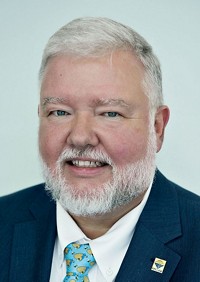Advertisement
Grab your lab coat. Let's get started
Welcome!
Welcome!
Create an account below to get 6 C&EN articles per month, receive newsletters and more - all free.
It seems this is your first time logging in online. Please enter the following information to continue.
As an ACS member you automatically get access to this site. All we need is few more details to create your reading experience.
Not you? Sign in with a different account.
Not you? Sign in with a different account.
ERROR 1
ERROR 1
ERROR 2
ERROR 2
ERROR 2
ERROR 2
ERROR 2
Password and Confirm password must match.
If you have an ACS member number, please enter it here so we can link this account to your membership. (optional)
ERROR 2
ACS values your privacy. By submitting your information, you are gaining access to C&EN and subscribing to our weekly newsletter. We use the information you provide to make your reading experience better, and we will never sell your data to third party members.
Comment
Comment: Managing risk: It’s a tricky business
by Paul W. Jagodzinski, chair, ACS Board of Directors
April 30, 2023
| A version of this story appeared in
Volume 101, Issue 14

We all manage risk in our daily lives and know it’s a tricky business. Risk and its outcomes are seldom completely understood in advance. That’s why it is called risk! We do our best to make the right decisions and adjust as the landscape changes and the level of risk increases or decreases.
All organizations face risk, and managing risk is a part of doing business. The size and complexity of the American Chemical Society means the risks are wide ranging, complex, and numerous. Risk for ACS can impact members, finances, meetings, the Publications Division, or CAS, a division of ACS.
Leadership requires identifying and managing risk for the people you lead. ACS leaders constantly identify and analyze potential risks facing our society. They make decisions on the basis of the risks that are prudent at the time the decision needs to be made. ACS leaders also adjust decisions as the landscape and risks change.
Adapting to a pandemic
Not all risks can be identified early enough to allow planning to eliminate or significantly reduce the risk. COVID-19 was one such example. Once it was clear that there was a global pandemic, ACS leaders worked diligently to minimize the COVID-19 risk to ACS staff and its members. The integrity, but not scope, of ACS operations was maintained by scaling back activities and transitioning employees to work remotely. To reduce risk for members, local sections and divisions were provided with additional funds they could use to maintain contact with and support their members. Local section and division leaders had to determine how to use those funds to minimize the risk to the activities that draw members together as part of ACS. Our society is emerging from COVID-19 in a very strong position as a result of how the risk was managed.
Staying alert to potential risk
To help manage financial risk, ACS has a Board of Directors Committee on Audits. The group works to address and ameliorate any issues identified from audits. It looks at trends, such as impending economic downturns, that could pose significant financial risk to ACS. The group also considers information that could signal future organizational or structural risk to ACS.
To help manage risk posed by social change, ACS has a Board of Directors Strategic Planning Committee. This group considers change drivers and their associated risks as it helps guide the future course of the society. The group considers open science, the changing workplace, lack of trust in science and scientists, and social responsibility, among myriad other issues.
Leading the way
People need and want leaders, even if they don’t always agree with their decisions. Typically, when leaders make decisions, they have more information about any particular matter than individual members do. Leaders, therefore, make decisions on the basis of facts with lots of associated nuanced information. This is why groups need leaders: to analyze nuanced information and come to the best reasonable conclusion that allows the group to move forward. ACS leaders, from local section leaders to board members, are constantly making decisions related to risk. The success of ACS at all levels and in all facets is testament to the quality of leaders we elect and appoint.
We need to thank ACS leaders, past and present, for addressing risk and making our society what it is today: the envy of other professional societies. We owe them a debt of gratitude for their willingness to tackle the difficult decisions.
Building leadership skills
If you are contemplating becoming a more engaged leader in ACS or in your professional work, ACS has many resources and training programs to help you achieve your goal. For example, the ACS Institute (institute.acs.org) has a number of courses that can help you develop necessary leadership skills.
Another resource that you should not overlook is networking with ACS leaders, both past and present. We have made many difficult decisions to manage risk for the society and we can help aspiring leaders learn how to do the same.
Remember we are all in this together to help ACS and our members thrive.
Views expressed are those of the author and not necessarily those of C&EN or ACS.





Join the conversation
Contact the reporter
Submit a Letter to the Editor for publication
Engage with us on Twitter